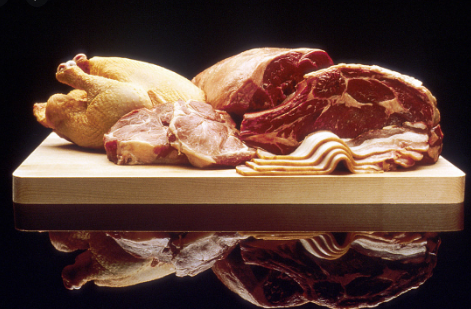With regards to fitness, we all know that proper dieting constitutes to fitter and sexy body. This is the reason why most fad diets restricts meat products in order to shed pounds quickly and effectively. But is that all true that meat such as pork may cause you to prevent weight loss?
Most people perceived pork as a bad food, which contains lots of saturated fats and no fiber. It has been linked to many health conditions especially to cardiovascular diseases and cancer. But before you curse this food out of your eating plan, let’s examine first if eating pork can really cause weight gain.
Facts about Pork and Weight Loss
pork and weight lossThe reality about pork meats are a bit overrated and most positive attributes are concealed from the public. Health organizations together with the power of media, this food has become the number one enemy for human health. It causes serious diseases and are linked to weight gain. While there are no clinical facts about pork being the main culprit of obesity, health conscious individuals are avoiding pork like a plague.
First off, being fat is a product of slow metabolism, unhealthy or uncontrollable diet and lack of exercise. Eating pork certainly does not mean that you are following an unhealthy diet. This means that eating pork or any foods can make you fat. Yes pork has saturated fats and no fiber but it doesn’t mean that it will hinder your weight loss. The old concept of meat being the culprit of weight gain is just a mere theory and not factual.
A study conducted by Pork and Health, even suggests that lean pork meats can support dieters. It states that high levels of protein, balanced diet with regular dose of exercise promotes weight loss, appetite control (you feel fuller) and muscle growth. Of course, you have to control your pork consumption to ensure you don’t overeat and suffer the negative effects of this meat product.
So having a pork meat on your plate does not mean that you are already putting weight, but rather the cause is the amount and combination of foods that you eat. Experts suggests that you should not eat more than 3 ounces of pork meat per meal.
Health Benefits of Pork
The nutrients and vitamins found in pork are often overlooked by its health risks. Pork is one of the best sources of protein, thiamin, vitamin B6, potassium, niacin, riboflavin, zinc and have low sodium content. If you are looking towards developing your muscles, then pork’s protein is an excellent choice for you.
Recently, pork’s reputation as a primary risk to heart diseases has finally been overcome thru intensive research. The American Heart Association certified pork tenderloin as one of the best food choices for the heart. This means that the right consumption of pork are actually beneficial to health, compared to traditional reports.
One important information to note is that, you only have to choose “lean” pork meat and not those read and fatty parts. How to identify lean pork? As said earlier, any part of the loin such as pork chop and pork roast are considerably leaner than skinless chicken thigh which perfectly met the government requirements for lean or extra lean. Furthermore, pork has passed comparison with other meats and poultry with regards to fat, calories and cholesterol.
Negative Health Effects of Pork
Pork have been in tight scrutiny for both its positive and negative health effects. Most often as I have said, negative effects spreads so easily thru media. You can’t blame people from avoiding pork because pigs are known scavengers, they eat insects, garbage and even their own poop. Farms that applies unhealthy diet regimen into their pigs are harmful for human consumption. Not to mention that we are not aware of this facts when we see pork in wet markets.
Not only does pork constitutes to heart diseases and cancer, it also linked to hepatitis E, trichinosis (worms), parasite infections, influenza and many others. To avoid these conditions, you should only buy pork meats in supermarkets that passed the government guidelines on pork.
Contrary to loin pork parts which are considered lean, parts such as shoulder, back fat, belly and those tagged as “prime” cuts should be highly avoided. These parts contains the highest composition of calories and saturated fats with less protein and absolutely no fiber (all parts have no fiber). Processed or commercial pork products such as bacon, ham, sausages and other processed meat products also have higher concentration of cholesterol and unhealthy fats. Avoid these foods at all means!
Summary on Pork and Weight Loss
Pork is an intriguing food entity which can cause confusion if you are misinformed. It is also forbidden in some religion which could have been the product of ancient culture. But nevertheless, pork is one of the most celebrated and widely accepted food product worldwide. With the food shortage never seemed to stop, is this the right time to pick which food is healthy or which is not?
Weight loss is not acquired through avoiding pork foods, but rather the amount of pork and other foods you consume. Choose only the leaner pork parts and avoid the fatty ones. You will enjoy more the taste and goodness of this product if you know how to manage your diet accordingly. Again, a well-balanced and healthy dieting program is the key to successful weight loss.
Now that you have enough knowledge with regards to the relationship between pork and weight loss, it is time for you to share your comment below. Your opinion is highly valuable to other readers of this site. Share your thoughts now and win a friend!



Comments
Post a Comment